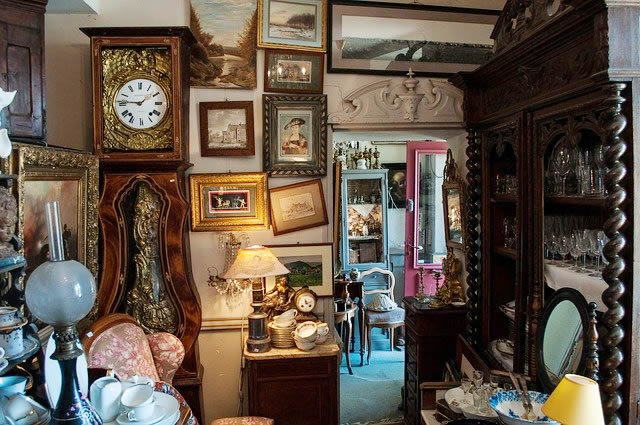先日から「The fate of antiques and heirlooms in a disposable age -「使い捨て時代のアンティークと家宝の運命」を読んでいます。

・「使い捨て時代のアンティークと家宝の運命」(1)
・「使い捨て時代のアンティークと家宝の運命」(2)
・「使い捨て時代のアンティークと家宝の運命」(3)
Flat-pack now dominates the cheaper end of the market.
現在、低価格帯の市場は平箱包装家具が牛耳っている。
Over the past few decades, the growth of low-cost self-assembly furniture has been dizzying,
過去数十年の間に、低価格の組立式家具が目まぐるしく増加し、
fuelling a disposable culture where items are regularly replaced, rather than cherished for generations.
何世代も大切に使い続けるより、定期的に買い替える使い捨て文化を助長してきた。
A fashion for minimalism in recent years has also contributed to the decline of antique demand,
近年のファッション界におけるミニマリズムの流行も、アンティーク需要の減少につながっており
says de Cabarrus“Living spaces were shrinking as house prices increased.
ド・キャバルス氏曰く「住宅価格の上昇に伴い、居住空間は狭まりました。
Bare floorboards, neutral coloured walls and a few pieces of Scandi flat-pack became the narrative ‘du jour’.
剥き出しの床板に中間色の壁、そして数点の北欧の組立式家具が「今風」を物語るようになりました。
Built-in storage caused a mass redundancy of antique wardrobes and chests of drawers, which are now gathering dust in the backs of country warehouses.”
作り付け収納のために、アンティークのタンスやチェストは大量の余剰物となり、今では田舎の倉庫裏で埃をかぶっています。」
redundancy「余分、余剰、余剰物、(表現の)冗長、人員過剰、(人員過剰のための)失業者」。
Meanwhile for many people, regularly moving for work or changing apartments has meant keeping hold of fewer home furnishings, argues Tsaknaki.
その一方、仕事の都合や住み替えで定期的に引っ越す人々の家財道具は減ってきているとツァクナキ氏は主張する。
“We don’t buy so many physical things.
「物理的にそれほど多くの物を買いません。
You don’t want to carry so much stuff.”
そんなに荷物は運びたくないですからね。」
So, while there may still be niche, high-end designers selling objects that endure, with so many people favouring cheap, replaceable homeware over heirlooms,
そのため、ニッチな高級デザイナーが長持ちする製品を販売することはあっても、多くの人がそうした家財よりも安価で交換可能な品を好むようになったのだが
it begs the question of whether our descendants will be left with nothing from us.
ここで湧いてくる疑問は、では私たちの子孫には何も残せないのだろうか、という事だ。
And if that’s the case with furniture, it may also apply to another category of items now populating our homes: technology.
家具がそうであるなら、今、私たちの家にある別部門、すなわちテクノロジーにもそれが当てはまるのかもしれない。
populate「居住する、生息する、人を居住させる、植民する」。
この間もアンティーク家具店に行ったら、手ごろな大きさのキャビネットや椅子などは正規の価格なのに、大きなタンスやチェストだけ半額セールになっていました。
とても立派で高級そうな家具でしたが、やっぱり売れないんでしょうね~、この記事を読んで改めてそう思いました。
今の人はすっきり広い空間こそが贅沢という感じなので、残念ながらいくら立派で素敵でも、場所を取る大きなアンティーク家具には、しばらく受難の時代が続きそうな気がします。
理由は単純明快!「少ないコストでしっかり楽しく学べるから」。
私自身の経験(高機能でビックリ)をびっしり書いていますので、良かったら読んでみてください。
下のバナーからどうぞ!






